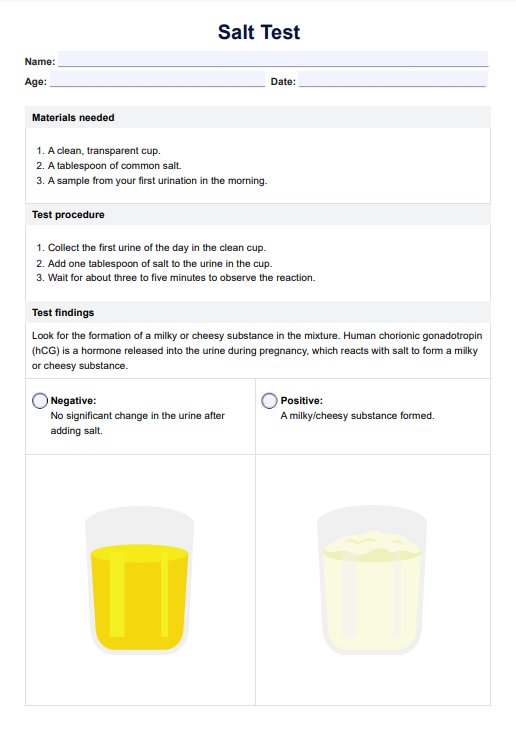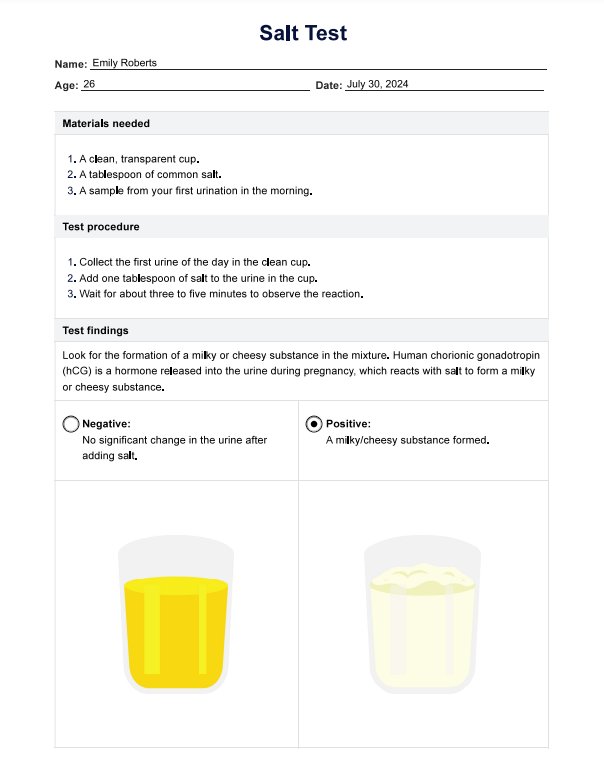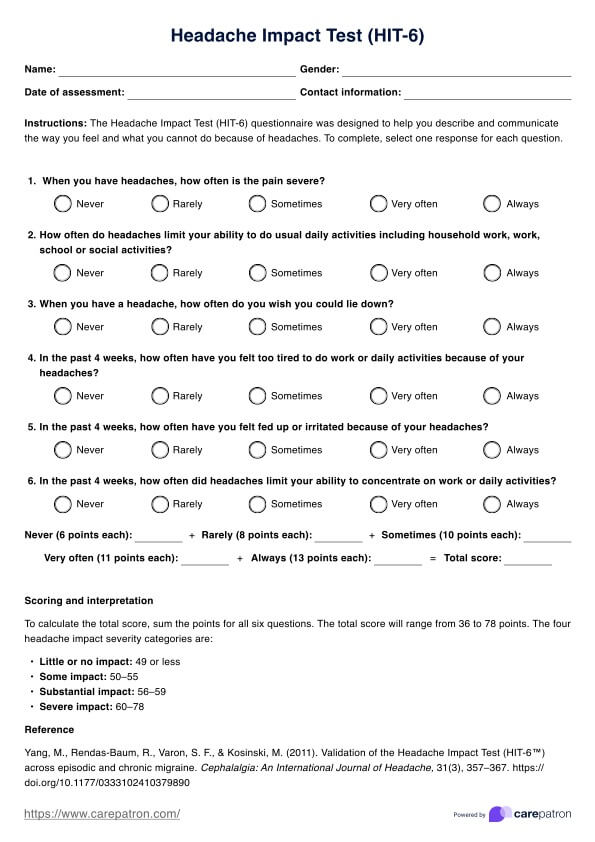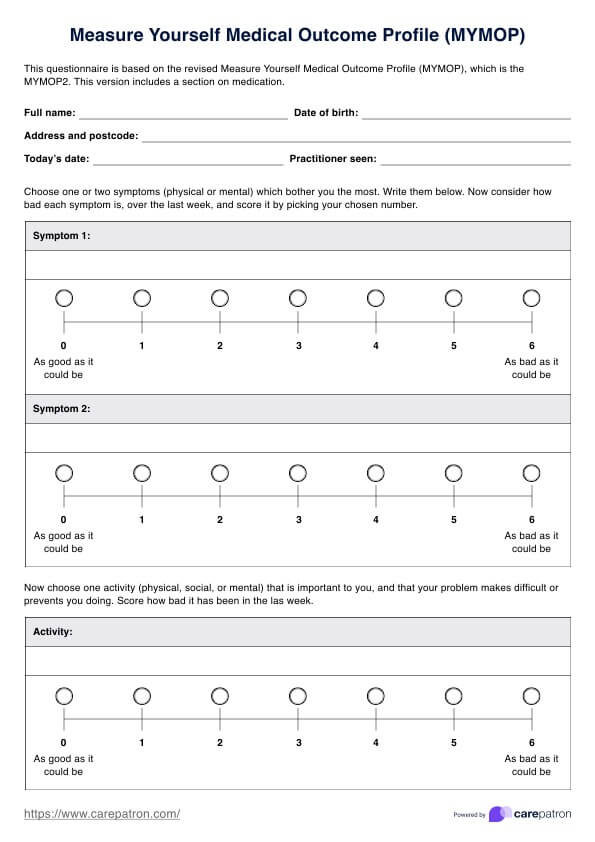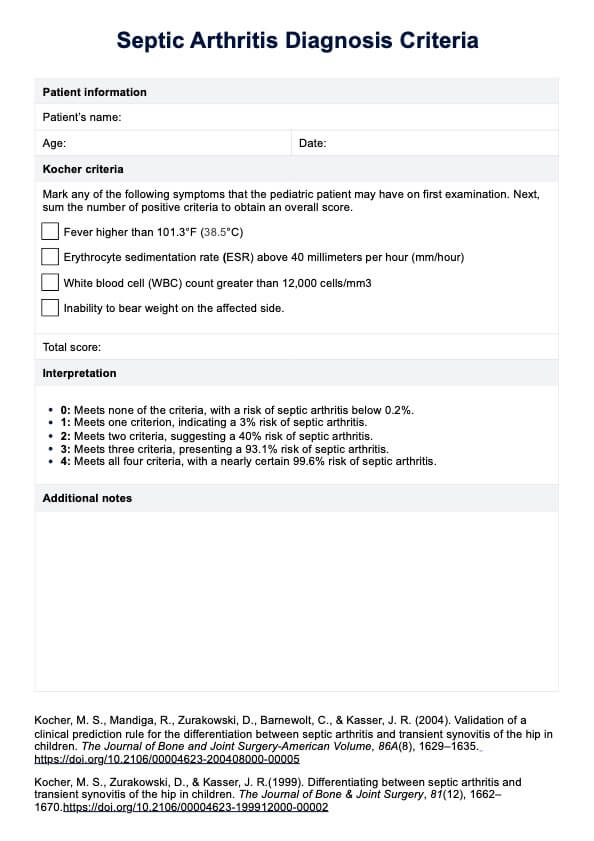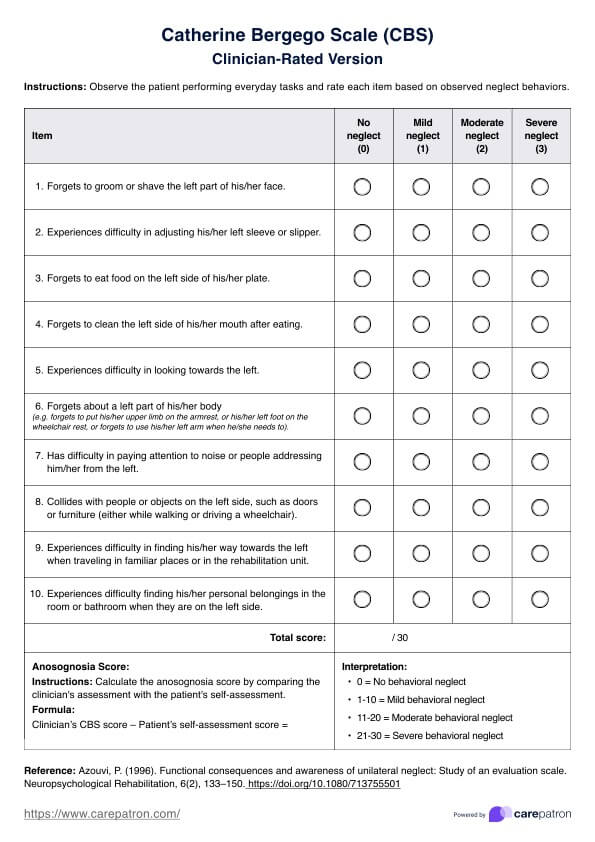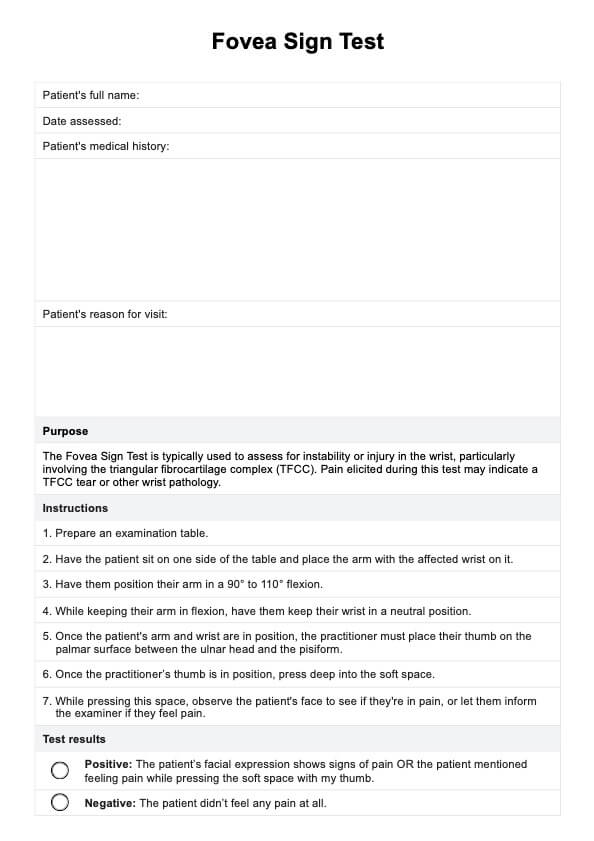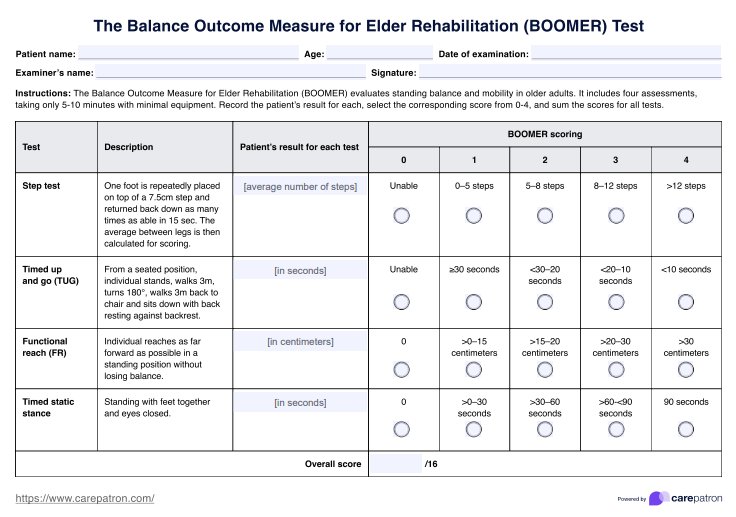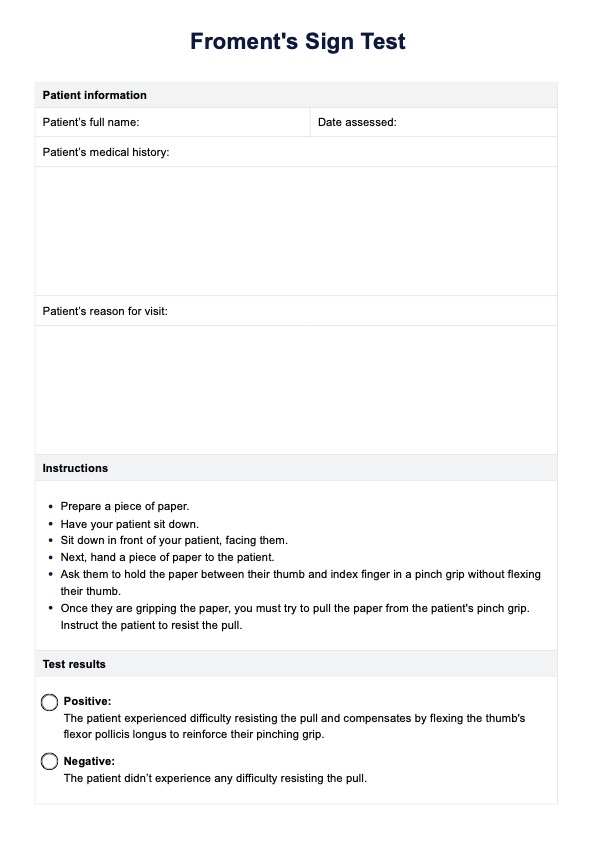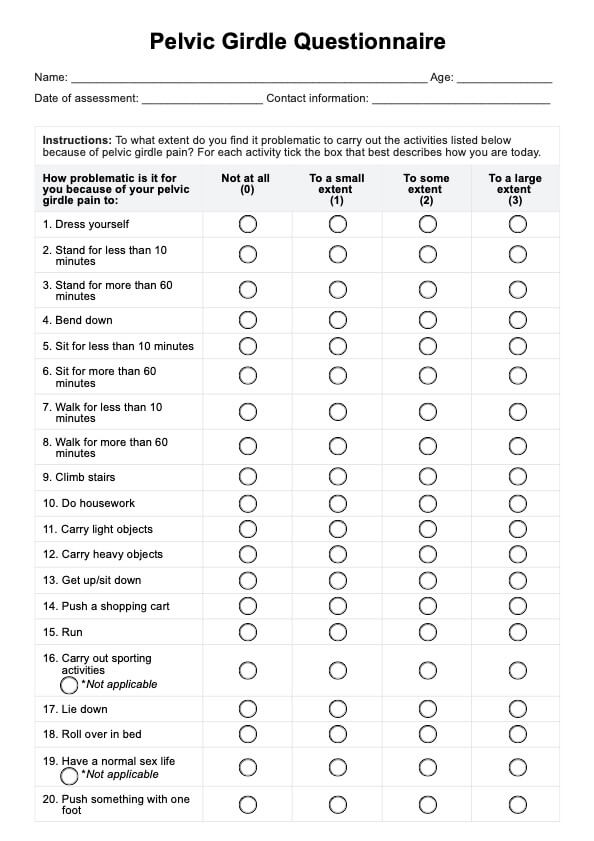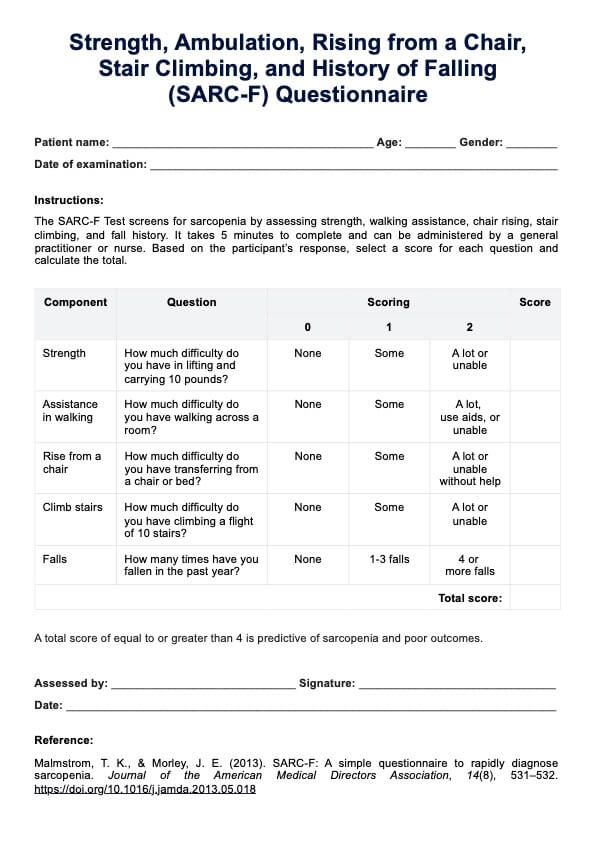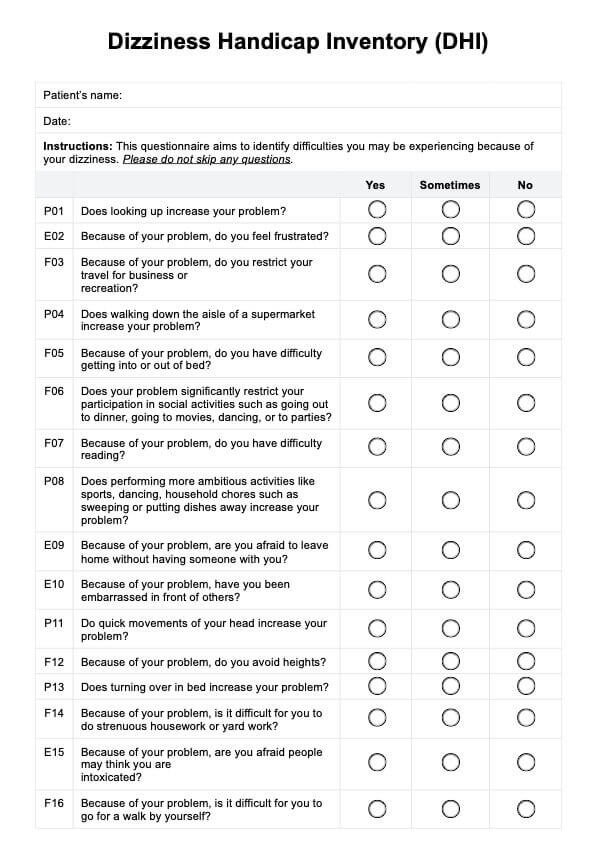Salt Test
Explore the Salt Test for pregnancy with our comprehensive guide and free template. Learn about its use, benefits, and why it's popular for early testing at home.


What is a salt pregnancy test?
A salt pregnancy test is a traditional home-based method purported to determine pregnancy by observing chemical reactions between table salt and urine. The premise is that when salt is mixed with urine containing the pregnancy hormone human chorionic gonadotropin (hCG), it supposedly creates a visible reaction that indicates pregnancy.
How do you use salt for a pregnancy test?
To perform the salt pregnancy test, follow these simple steps:
- Collect a small amount of your first morning urine in a clean, clear container.
- Add a tablespoon or two of plain table salt to the urine.
- Wait for three to five minutes to observe any reaction.
A positive result is typically indicated by the formation of a white, milky, or cheesy layer on the surface of the mixture, while a negative result shows no significant change.
Salt Test Template
Salt Test Example
Benefits of using salt pregnancy testing
While the salt pregnancy test is not scientifically validated or recommended by healthcare professionals for accurate pregnancy detection, it continues to be a popular choice among some individuals for various reasons. Here are some benefits that contribute to its popularity:
- Accessibility: The salt pregnancy test can be performed easily at home with ingredients that are readily available in most households. This accessibility makes it an attractive option for initial, informal testing.
- Cost-effective: This test requires only common table salt and a sample of urine, making it extremely cost-effective compared to over-the-counter pregnancy tests.
- Immediate results: The test provides results quickly, typically within a few minutes. This rapid turnaround can appeal to those eager for early pregnancy indications.
- Simplicity: The test is straightforward and does not require any special tools or extensive procedures, which adds to its appeal for an at-home, do-it-yourself approach.
- Privacy: Conducting the test at home offers complete privacy, which can be comforting for individuals who prefer to keep their potential pregnancy confidential in the early stages.
It's important to acknowledge that these benefits relate primarily to convenience and should not override the necessity for accurate, reliable medical testing. The salt pregnancy test should be considered more as a cultural phenomenon or a curiosity rather than a legitimate diagnostic tool.
Limitations of salt pregnancy testing
While the salt pregnancy test is easy to perform and accessible, it has significant limitations that are crucial to understand:
- Lack of scientific validation: There is no scientific evidence or peer-reviewed studies to support the reliability or accuracy of the salt pregnancy test. The reactions observed are not based on any proven biochemical interaction between hCG and sodium chloride, making the test scientifically baseless and medically unrecognized (Masters, 2022).
- High risk of false results: The test is prone to false positives and false negatives due to its unscientific nature. Factors such as environmental conditions, the composition of the urine, and variations in salt type can all influence the results, leading to incorrect assumptions about pregnancy—a person's renal functions would have a bigger effect on the Salt Test results, since it's the urine's protein and mineral content that interacts with salt, not hCG.
- Potential for misinterpretation: The subjective nature of interpreting the results—such as judging whether a substance looks "milky" or "cheesy"—can vary significantly between users, which contributes to its unreliability. In fact, in many trying-to-conceive (TTC) forums, users post photos of Salt Test results for others to look at, simply because it can be hard to interpret them (Healthline, 2019).
- Ethical concerns: Using or promoting an unreliable test can raise ethical concerns, particularly if the results influence emotional well-being and healthcare decisions. It may delay appropriate medical consultation or lead to misinformed health choices.
These limitations highlight why the salt pregnancy test should be regarded more as a curiosity than a legitimate diagnostic tool. Clinically approved home pregnancy tests should always be used for accurate pregnancy detection.
Is a positive pregnancy test using the salt method accurate?
No, the salt testing is not a reliable pregnancy test. Due to its unreliable and unvalidated nature, healthcare professionals do not endorse the salt pregnancy test. For accurate pregnancy testing, medically approved methods such as home pregnancy test kits or laboratory tests, which are capable of detection and accurate measurement of hCG more specifically and reliably, should be used. It is more likely to know your pregnancy status after getting your blood tested than with the salt method.
The supposed reaction involves the salt inducing a change in the urine's protein structure when hCG is present, leading to the formation of a milky or cheesy substance. However, no chemical reaction between sodium chloride and hCG would cause such a result. Instead, any changes observed are likely due to variations in urine's natural properties, such as its acidity or protein content, which are not reliable indicators of pregnancy.
References
Healthline. (2019, September 30). Home pregnancy test with salt positives and negatives: Accurate? (V. Riggins Nwadike, Ed.). https://www.healthline.com/health/pregnancy/home-pregnancy-test-with-salt#accuracy
Masters, M. (2022, May 19). Pregnancy test with salt (A. Styer, Ed.). What to Expect. https://www.whattoexpect.com/getting-pregnant/prepping-for-pregnancy/pregnancy-test-with-salt/
Commonly asked questions
The Salt Test method for pregnancy involves mixing a urine sample with table salt and observing any changes, such as the formation of a milky or cheesy substance, which some believe indicates pregnancy.
Collect your first morning urine in a clear container, add a couple of tablespoons of table salt, wait a few minutes, and observe if a milky or cheesy layer forms.
The salt pregnancy test is not scientifically reliable. It does not have a proven basis for accurately detecting pregnancy, and healthcare professionals recommend using medically approved pregnancy tests instead.


